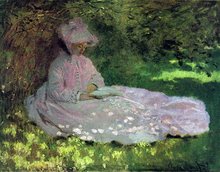Khaled Hosseini’s The Kite Runner is a bit like Schindler’s List. It’s intense, difficult to digest, and satisfying, yet not something you want to repeat often. Its themes are common enough: guilt/redemption, father/son relationship, power/control, prejudice, human nature (good acts vs. cruelty). The storytelling was good enough, at times beautiful and breezy. The characters were well-drawn if a bit stereotypical. The conflicts were real. The glimpse into another culture interesting. The ending was satisfying. But the story was filled with such pain and tragedy, it was hard to get through at times. The ending was a relief, not only in that Amir earns redemption but also because I could finally put the book down.
While the story has enough themes to keep it interesting, I would classify The Kite Runner as a character study more than anything. We have Amir’s father, a strong and moral man. He is charitable (gives food to poor, builds an orphanage), a critical thinker (don’t believe all the holy men tell you), and a bit cynical. There is the bully Assef, who never grows out of his emotional smallness and parochial view of the world. His rants make him sound like Draco Malfoy, Harry Potter’s enemy: “We are the true Afghans, the pure Afghans, not this Flat-Nose here” (40). There is Hassan, the pure-hearted and loyal servant friend (much like Samwise Gamgee in the Lord of the Rings trilogy (a character who, in my opinion, is the true hero of the novel). Hassan knows who he is, remains steadfast to Amir, and is eternally optimistic. He is the perfect lamb, and Amir is the slaughterer.
The narrator Amir, is, as his father fears, weak. As a boy, he lacks courage. He is given opportunities to grow stronger but turns his back on them again and again. As a result, he abuses his “power” over his servant Hassan by teasing him and using him as his own personal ego-stroker while at the same time struggling over his feelings of admiration for Hassan. Amir afflicts small emotional abuses upon Hassan when he teases him with vocabulary words and does not acknowledge Hassan as his friend. Amir happily receives the attention Hassan pays him when the servant boy praises his master’s writing. And Amir struggles with himself, he wavers between embarrassment over Hassan and pride.
On page 54, Amir cruelly asks Hassan if the latter would “eat dirt if I told you to” and admits to being fascinated by teasing Hassan – his friend, his servant – as if Amir were torturing an insect.
On the very next page, the author gracefully describes a scene that shows the admiration Amir has for Hassan:
“Here it comes,” Hassan said, pointing to the sky. He rose to his feet and walked a few paces to his left. I looked up, saw the kite plummeting toward us. I heard footfalls, shouts, an approaching melee of kite runners. But they were wasting their time. Because Hassan stood with his arms wide open, smiling, waiting for the kite. And may God – If He exists, that is – strike me blind if the kite didn’t just drop into his outstretched arms.
As time passes, we learn that fear rules Amir’s life. He is afraid not only of being physically hurt but also from being emotionally vulnerable. His father recognizes this fear in his son – as we see when he expresses his concern to his friend – and his concerns are justified.
Amir’s greatest act of fear comes when he fails to fight for Hassan as the boy is being raped (just one of the difficult scenes to read). Amir allows Hassan to suffer this indignity and then – to add insult to injury – turns his back on Hassan’s friendship. This event crippled both Hassan and Amir. Hassan “stopped smiling,” and Amir became haunted by guilt.
Ultimately, it was Amir’s lifetime of guilt coupled with his deep but often suppressed admiration that led him to redeem himself as an adult. He left his cushy life in America to return to war-ravaged Afghanistan. He suffered Assef’s beating and took in Hassan’s newly orphaned son as part of his own family. He was given a chance to make up for his lack of courage as a boy, took that chance with reluctance, and with it, took a step closer to purifying his soul.
Sunday, May 18
Subscribe to:
Post Comments (Atom)

4 comments:
Interesting that you describe Amir's father as charitable. Yes, he was, as long as feelings weren't involved. He wasn't as giving with his love as with his material objects. Of course, he had his own inner demons to deal with, so I can't really blame him.
Also, a nice comparison between Hassan and Samwise Gamgee. You are totally right in saying that Sam is the true hero of LotR. What can any of us accomplish without those who believe in us and buoy us up?
AND, "satisfying." That's the word I was looking for. I can't say that I enjoyed the book, but I did find it satisfying.
Thanks!!
Danielle, that was the book in a nutshell, how I felt about it. Very tragic, but the ending is very satisfying. I loved your whole review of the struggles and descriptions of the characters. Right on the nose.
Katie -- You make a good point about his father being charitable when his feelings weren't involved. I guess it was easy for him to be kinder to people he didn't know (orphans, the poor) than his own family (his son). It reminds me of lyrics from the rock opera Hair:
"How can people have no feelings
How can they ignore their friends
Easy to be proud
Easy to say no
And especially people
Who care about strangers
Who care about evil
And social injustice
Do you only
Care about the bleeding crowd?
How about a needing friend?
I need a friend"
--James Rado & Gerome Ragni
Post a Comment